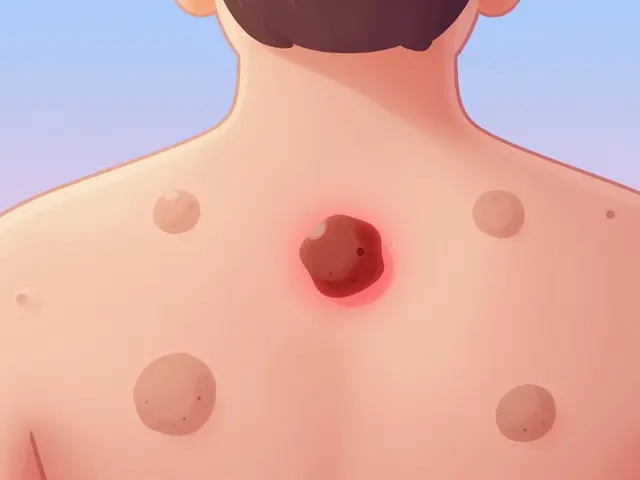Where and How to Safely Buy Sertraline Online: A Practical Guide
July 19 2025Libido: Practical Tips to Boost Desire and Understand Low Sex Drive
Lost interest in sex and not sure why? Low libido is common and usually has a few clear causes you can act on. This guide gives simple, practical steps you can try today, what to check with your doctor, and when therapy or medical tests make sense.
Common causes of low libido
Stress and sleep problems cut desire fast. If you’re exhausted from work or sleep-deprived from kids, your body shifts into survival mode — sex drops on the priority list. Medications also matter: some antidepressants and blood-pressure drugs blunt sexual interest. Hormones play a role too — low testosterone in men and changing estrogen levels in women can reduce desire. Chronic illness, pain, heavy drinking, and relationship problems are other common reasons.
If your drop in libido started after a new prescription, talk to your prescriber. Some antidepressants are linked with sexual side effects; asking about alternatives or dose changes can help. Hormone therapy — like estrogen treatments used around menopause — can also shift libido either way, so a quick hormone check is a useful step if symptoms are new.
Practical steps to try today
Start with sleep and stress. Aim for consistent bedtimes, cut screen time before sleep, and try short stress breaks during the day — even 10 minutes of deep breathing helps. Move more: three 30-minute walks a week can boost mood, energy, and body confidence, which often lifts desire.
Watch alcohol. A drink or two can loosen you up, but heavy drinking lowers libido. Try cutting back for a couple weeks to see if things improve. Also check common health basics: blood sugar, thyroid, and hormone panels. These are simple tests your doctor can order.
Talk with your partner. Honest, low-pressure conversations about desire, timing, and what feels good matter more than you think. Try scheduling intimate time if spontaneous moments rarely happen — yes, it sounds unromantic, but it works for busy couples.
Small sexual changes can help: longer foreplay, removing performance pressure, and adding sensual activities that don’t center on intercourse. If pain is an issue, pelvic floor exercises and a pelvic health physiotherapist can make a big difference.
Want to try supplements? Keep expectations realistic. A few options, like maca or L-arginine, show mixed results. Always check interactions with meds before starting anything new.
If low libido lasts several months and hurts your relationship or self-esteem, get help. A primary care doctor can rule out medical causes and order tests. A sex therapist or couples counselor helps when communication or past experiences are part of the problem. For hormone issues, an endocrinologist or gynecologist can advise on safe treatments.
Small, deliberate changes often make the biggest difference. Start with sleep, stress, and honest talk, then add targeted medical checks if things don’t improve. You don’t have to accept low desire as permanent — there are clear next steps to try.
 21 May
21 May
Tibolone and Your Sex Life: Can It Improve Libido During Menopause?
I recently came across an interesting topic about Tibolone and its potential effects on our sex life during menopause. From what I gathered, Tibolone is a synthetic hormone that can help improve libido and reduce menopausal symptoms. Many women experience a decrease in sexual desire during this phase, and it seems that Tibolone could be a promising solution. However, it's important to consult with a healthcare professional before trying any new treatments. I'm excited to explore this topic further and share my findings with you all!
Read More...




